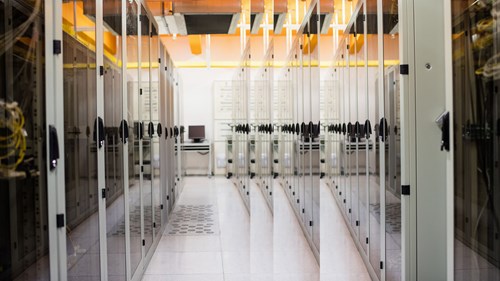European Commission adopts Temporary Framework for State aid measures to support corona pandemic affected economy
***** Update on 06 April 2020 *****
On 3 April 2020, the European Commission has expanded the „Temporary Framework“ that defines the state aid compliant scope of national support measures for companies. Existing measures have been extended and new measures have been introduced. We expect the Member States to implement the new measures shortly.
- Miember States now can give up to the nominal value of EUR 800 000 per company, zero-interest loans, guarantees on loans covering 100% of the risk, or provide equity.
- This can be combined with de minimis aid (to bring the aid per company to up to EUR 1 million) and with other types of aid.
- Guaranties and subsidized loans can be provided for a longer period than six years.
The new measures also concern:
- Support for coronavirus related R&D: Member State can provide direct grants, repayable advances or tax advantages for coronavirus and other relevant antiviral R&D. A bonus may be granted for cross-border cooperation projects between Member States.
- Support for the construction and up-scaling of testing facilities: Member States can provide direct grants, tax advantages, repayable advances and no-loss guarantees to support investments enabling the construction or up-scaling of infrastructures needed to develop and test products useful to tackle the coronavirus outbreak, up to first industrial deployment. These include medicinal products (including vaccines) and treatments; medical devices and equipment (including ventilators and protective clothing, as well as diagnostic tools); disinfectants; data collection and processing tools useful to fight the spread of the virus. Companies can benefit from a bonus when their investment is supported by more than one Member State and when the investment is concluded within two months after the granting of the aid.
- Support for the production of products relevant to tackle the coronavirus outbreak: Member States can provide direct grants, tax advantages, repayable advances and no-loss guarantees to support investments enabling the rapid production of coronavirus-relevant products (as listed under ii.). Companies may benefit from a bonus when their investment is supported by more than one Member State and when the investment is concluded within two months after the granting of the aid.
- Targeted support in the form of deferral of tax payments and/or suspensions of social security contributions: Member States can grant targeted deferrals of payment of taxes and of social security contributions in those sectors, regions or for types of companies that are hit the hardest by the outbreak.
- Targeted support in the form of wage subsidies for employees: Member States can contribute to the wage costs of those companies in sectors or regions that have suffered most from the coronavirus outbreak, and would otherwise have had to lay off personnel.
*****
Background
On 19 March 2020, following consultations with the EU Member States, the European Commission (“Commission”) adopted in record time a "Temporary Framework" for State aid measures that identifies the scope of far-reaching rescue schemes Member States will implement for companies.
All national rescue schemes that fall under the ambit of the Temporary Framework will have to comply with such framework – otherwise the Commission’s approval of deviating or different aid schemes would be required. Member States, therefore, have limited scope to launch national aid schemes that deviate from the Temporary Framework. It follows that the conditions of the Temporary Framework will, in general, also apply to companies, which should consult their banks and provide the required information. We expect the national aid schemes to be implemented very quickly.
Direct grants, selective tax advantages and advance payments
Companies can receive up to EUR 800,000 in the form of direct grants, repayable advances or tax advantages until 31 December 2020 (other provisions and reduced amounts of aid apply to the agricultural, fishery and aquacultural sectors).
State guarantees for loans taken by companies from banks
Member States will be able to grant guarantees for loans for a maximum duration of six years. The guarantee may cover up to 90% of the loan principal with the proviso that losses are shared proportionally and under the same conditions by the credit institution and the State or, where the guarantee covers up to 35% of the loan principal, with the proviso that losses are first attributed to the State and only then to the credit institutions.
The guarantee premiums have been decreased to low levels. For loans with longer repayment periods, the loan principal may not exceed certain thresholds (e.g.: the double of the annual wage bill of the beneficiary, 25% of the total turnover of the beneficiary in 2019). The guarantee may relate to both investment and working capital loans.
Subsidized interest rates for loans
Member States may grant subsidized interest rates for loans for a maximum of six years. The loans may be granted at reduced interest rates which are at least equal to the base rate applicable on 1 January 2020 (1 year IBOR or equivalent as published by the Commission) plus a credit risk margin depending on the term of the loan. Certain thresholds also apply in this respect (the loan may not exceed twice the annual wage bill of the beneficiary or 25% of the total turnover of the beneficiary in 2019). The loans may relate to both investment and working capital loans.
Both state guarantees and subsidized interest rates require that companies were not in difficulty (within the meaning of the General Block Exemption Regulation No 651/2014, e.g. opening of insolvency proceedings, certain financial indicators) on 31 December 2019. The intention of the Commission to apply aid only to the negative effects of the corona pandemic will prevent companies that are currently undergoing successful restructuring access to aid measures. Since these companies have effectively no chance of recovery under the Temporary Framework, it remains to be seen whether the Commission will approve aid schemes based on a different legal basis or, indeed, a great number of insolvencies may occur.
Short-term export credit insurance
Member States can provide coverage under certain conditions for marketable risks now.
Period of availability
The Temporary Framework will initially run until the end of December 2020. The Commission will apply the Temporary Framework from 19 March 2020 to all programs and measures, even those of which Member States have notified the Commission in advance.
Support outside the Temporary Framework/existing support measures
Aid granted under the existing State aid frameworks is not affected by the Temporary Framework and can continue to be granted, as can aid that is in principle allowed under the General Block Exemption Regulation No 651/2014. In addition, Member States may notify support programs to the Commission under the existing Rescue and Restructuring State aid Guidelines (Guidelines on State aid for rescuing and restructuring non-financial undertakings in difficulty (2014/C 249/01).
To bridge liquidity shortfalls, Member States may also grant rescue aid outside the Temporary Framework to companies operating in sectors which are particularly affected by the corona crisis, such as transport, tourism, culture, hotels and restaurants, commerce and tour operators. It is particularly important for airlines that the "one time, last time" principle applicable to rescue and restructuring aid does not apply to these aid measures. Support measures for banks which are themselves in need of aid because of the corona pandemic are not covered by the Temporary Framework and other existing aid schemes (with corresponding restrictions) for the banking sector; the Commission will apply a different basis for approval in this regard.
Please click here for more details on the "Temporary Framework" measures.
Well
informed
Subscribe to our newsletter now to stay up to date on the latest developments.
Subscribe now











